第36章 Chapter 9(2)
These two doctors, whom, to avoid any malicious applications, we shall distinguish by the names of Dr. Y. and Dr. Z., having felt his pulse; to wit, Dr. Y. his right arm, and Dr. Z. his left; both agreed that he was absolutely dead; but as to the distemper, or cause of his death, they differed; Dr. Y. holding that he died of an apoplexy, and Dr. Z. of an epilepsy.
Hence arose a dispute between the learned men, in which each delivered the reasons of their several opinions. These were of such equal force, that they served both to confirm either doctor in his own sentiments, and made not the least impression on his adversary.
To say the truth, every physician almost hath his favourite disease, to which he ascribes all the victories obtained over human nature. The gout, the rheumatism, the stone, the gravel, and the consumption, have all their several patrons in the faculty; and none more than the nervous fever, or the fever on the spirits. And here we may account for those disagreements in opinion, concerning the cause of a patient's death, which sometimes occur, between the most learned of the college; and which have greatly surprized that part of the world who have been ignorant of the fact we have above asserted.
The reader may perhaps be surprized, that, instead of endeavouring to revive the patient, the learned gentlemen should fall immediately into a dispute on the occasion of his death; but in reality all such experiments had been made before their arrival: for the captain was put into a warm bed, had his veins scarified, his forehead chafed, and all sorts of strong drops applied to his lips and nostrils.
The physicians, therefore, finding themselves anticipated in everything they ordered, were at a loss how to apply that portion of time which it is usual and decent to remain for their fee, and were therefore necessitated to find some subject or other for discourse;and what could more naturally present itself than that before mentioned?
Our doctors were about to take their leave, when Mr. Allworthy, having given over the captain, and acquiesced in the Divine will, began to enquire after his sister, whom he desired them to visit before their departure.
This lady was now recovered of her fit, and, to use the common phrase, as well as could be expected for one in her condition. The doctors, therefore, all previous ceremonies being complied with, as this was a new patient, attended, according to desire, and laid hold on each of her hands, as they had before done on those of the corpse.
The case of the lady was in the other extreme from that of her husband: for as he was past all the assistance of physic, so in reality she required none.
There is nothing more unjust than the vulgar opinion, by which physicians are misrepresented, as friends to death. On the contrary, Ibelieve, if the number of those who recover by physic could be opposed to that of the martyrs to it, the former would rather exceed the latter. Nay, some are so cautious on this head, that, to avoid a possibility of killing the patient, they abstain from all methods of curing, and prescribe nothing but what can neither do good nor harm. Ihave heard some of these, with great gravity, deliver it as a maxim, "That Nature should be left to do her own work, while the physician stands by as it were to clap her on the back, and encourage her when she doth well."So little then did our doctors delight in death, that they discharged the corpse after a single fee; but they were not so disgusted with their living patient; concerning whose case they immediately agreed, and fell to prescribing with great diligence.
Whether, as the lady had at first persuaded her physicians to believe her ill, they had now, in return, persuaded her to believe herself so, I will not determine; but she continued a whole month with all the decorations of sickness. During this time she was visited by physicians, attended by nurses, and received constant messages from her acquaintance to enquire after her health.
At length the decent time for sickness and immoderate grief being expired, the doctors were discharged, and the lady began to see company; being altered only from what she was before, by that colour of sadness in which she had dressed her person and countenance.
The captain was now interred, and might, perhaps, have already made a large progress towards oblivion, had not the friendship of Mr. Allworthy taken care to preserve his memory, by the following epitaph, which was written by a man of as great genius as integrity, and one who perfectly well knew the captain.
HERE LIES, IN EXPECTATION OF A JOYFUL RISING, THE BODY OFCAPTAIN JOHN BLIFIL.
LONDON
HAD THE HONOUR OF HIS BIRTH, OXFORD
OF HIS EDUCATION.
HIS PARTS
WERE AN HONOUR TO HIS PROFESSION
AND TO HIS COUNTRY
HIS LIFE, TO HIS RELIGION
AND HUMAN NATURE.
HE WAS A DUTIFUL SON, A TENDER HUSBAND, AN AFFECTIONATE FATHER, A MOST KIND BROTHER, A SINCERE FRIEND, A DEVOUT CHRISTIAN, AND A GOOD MAN.
HIS INCONSOLABLE WIDOW
HATH ERECTED THIS STONE, THE MONUMENT OF
HER VIRTUES
AND OF HER AFFECTION.